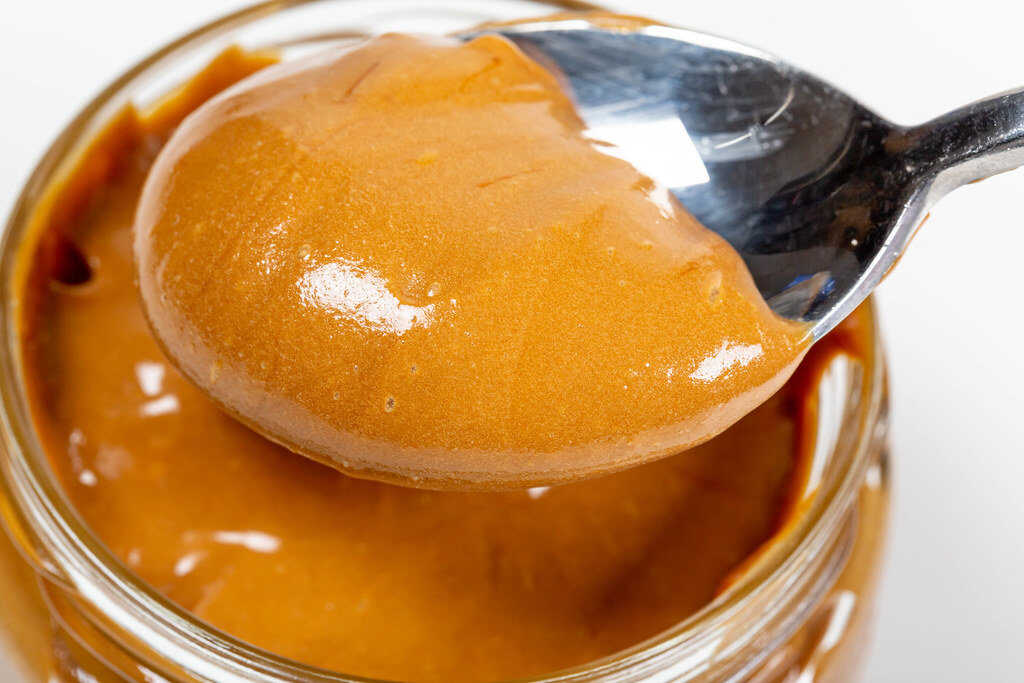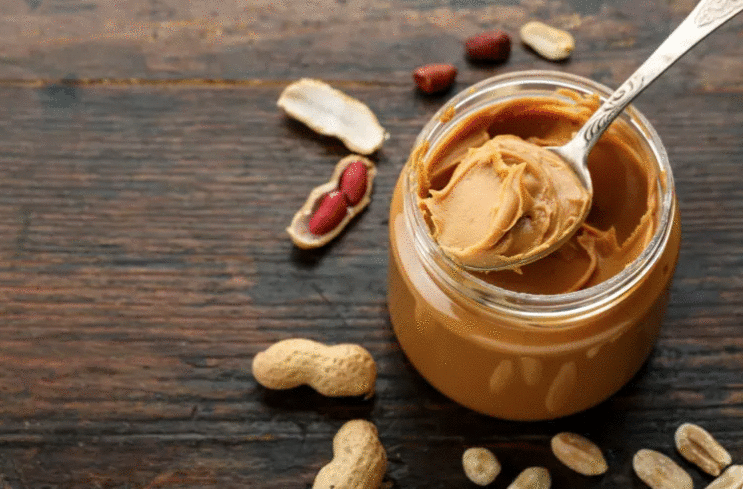Does Peanut Butter Go Bad? Understanding Its Shelf Life and Signs of Spoilage
Peanut butter is a beloved pantry staple for many, cherished for its creamy texture, rich flavor, and versatility in both sweet and savory dishes. Whether spread on toast, used as a dip for fruits and vegetables, or incorporated into desserts and smoothies, peanut butter is a versatile ingredient that adds a delightful nutty taste to a variety of recipes. However, like all food products, peanut butter does have a shelf life, and many often wonder, ‘Does peanut butter expire?’ Understanding when and how peanut butter can go bad is essential for maintaining its quality, flavor, and safety.
Can Peanut Butter Go Bad?
In this comprehensive guide, we’ll delve into the nutrition and benefits of peanut butter, explore the factors that determine if and when peanut butter go bad, and provide practical tips on storage and shelf life. Whether you’re a fan of No Bake Peanut Butter Cookies, a delicious Peanut Butter Banana Smoothie, or simply enjoy peanut butter on its own, this guide will help you enjoy this delectable spread while ensuring its freshness and safety.
Nutrition and Benefits of Peanut Butter
Peanut butter is not just delicious; it’s also packed with essential nutrients and offers a range of health benefits:
- Nutritional Profile: Peanut butter is a rich source of protein, healthy fats, fiber, vitamins, and minerals. A two-tablespoon serving typically contains:
- Calories: 190
- Protein: 8 grams
- Fat: 16 grams (mostly unsaturated)
- Carbohydrates: 7 grams
- Fiber: 2 grams
- Vitamins and minerals: Vitamin E, magnesium, potassium, and antioxidants
- Health Benefits:
- Heart Health: The unsaturated fats in peanut butter help lower bad cholesterol levels, reducing the risk of heart disease.
- Weight Management: The protein and fiber content in peanut butter help keep you full, aiding in weight management and appetite control.
- Nutrient Density: Peanut butter is a nutrient-dense food, providing a wide range of essential nutrients in each serving.
- Energy Boost: The healthy fats and protein in peanut butter provide sustained energy, making it an excellent pre or post-workout snack.
Moreover, peanut butter is incredibly versatile, making it a favorite ingredient in a variety of recipes, from savory sauces to sweet treats like No Bake Peanut Butter Cookies and Peanut Butter Banana Smoothies. Its rich flavor and creamy texture make it a delightful addition to both cooking and baking.
Does Peanut Butter Expire?
Now, let’s address the pressing question: “Does peanut butter expire?” The short answer is yes, but the shelf life of peanut butter depends on various factors, including storage conditions and whether it’s natural or commercial peanut butter.
How to Store Peanut Butter
- Natural Peanut Butter: Natural peanut butter, made with just peanuts and sometimes salt, tends to have a shorter shelf life due to its lack of preservatives. When stored properly in a cool, dry place, an unopened jar of natural peanut butter can last up to 6-9 months. Once opened, it should be refrigerated and consumed within 2-3 months for best quality.
How Long Does Peanut Butter Last?
- Commercial Peanut Butter: Commercial peanut butter, which often contains added oils, sugars, and preservatives, typically has a longer shelf life. An unopened jar of commercial peanut butter can last up to a year when stored in a cool, dry place. Once opened, it should be consumed within 3-4 months if stored at room temperature or up to 6-9 months if refrigerated.
How to Tell If Peanut Butter Has Gone Bad
- Signs Peanut Butter Has Gone Bad:
- Odor: If peanut butter develops an off-smell, it’s a clear sign that it has gone bad.
- Texture: Mold growth, a gritty texture, or separation of oil on the surface are indicators that the peanut butter is no longer safe to consume.
- Taste: A rancid or sour taste is a definite sign that the peanut butter has spoiled.
Understanding how to store peanut butter properly and recognizing the signs that peanut butter has gone bad is crucial for maintaining its freshness, flavor, and safety. Whether you’re enjoying it in many delicious recipes, ensuring your peanut butter is fresh and properly stored is essential.
Does Peanut Butter Go Bad in the Fridge?
The fridge is indeed a valuable tool for prolonging the shelf life of many foods, but even it has its limits. So, when does peanut butter expire in the fridge? Typically, opened peanut butter will start to deteriorate after approximately nine months of refrigeration.
Although refrigeration can significantly extend the freshness of peanut butter compared to storing it in the pantry, it’s important to remember that it won’t last forever. Once you’ve refrigerated peanut butter, it’s crucial not to overlook it indefinitely. If you find that your refrigerated peanut butter has exceeded the expiration date printed on the packaging, regardless of when you initially opened it, it’s best to err on the side of caution and discard it to ensure food safety.
Here’s how long you can store peanut butter, according to FoodSafety:
| Type of Peanut Butter | Open or Unopened | Pantry or Refrigerator | Length of Storage |
| Conventional peanut butter | Unopened | Pantry | 6-9 months |
| Conventional peanut butter | Opened | Pantry | 2-3 months |
| Conventional peanut butter | Opened | Refrigerator | 3-4 months |
| Natural peanut butter | Unopened | Refrigerator | 12 months (if refrigerated from the date of purchase) |
| Natural peanut butter | Opened | Refrigerator | 3-4 months |
Peanut butter is a delightful and nutritious food that offers a wide range of culinary possibilities and health benefits. From its rich nutritional profile to its versatility in cooking and baking, peanut butter is a beloved ingredient that many enjoy daily. However, it’s essential to understand that peanut butter can go bad, and proper storage and awareness of its shelf life are crucial for enjoying it safely and deliciously.
By following the guidelines and tips provided in this comprehensive guide, you can continue to enjoy the rich, nutty flavor and numerous benefits of peanut butter while ensuring its freshness and safety for all your culinary adventures. So, the next time you reach for that jar of peanut butter, you can do so with confidence, knowing you’re making a tasty and nutritious choice for you and your family. Happy cooking and enjoy your peanut butter!

